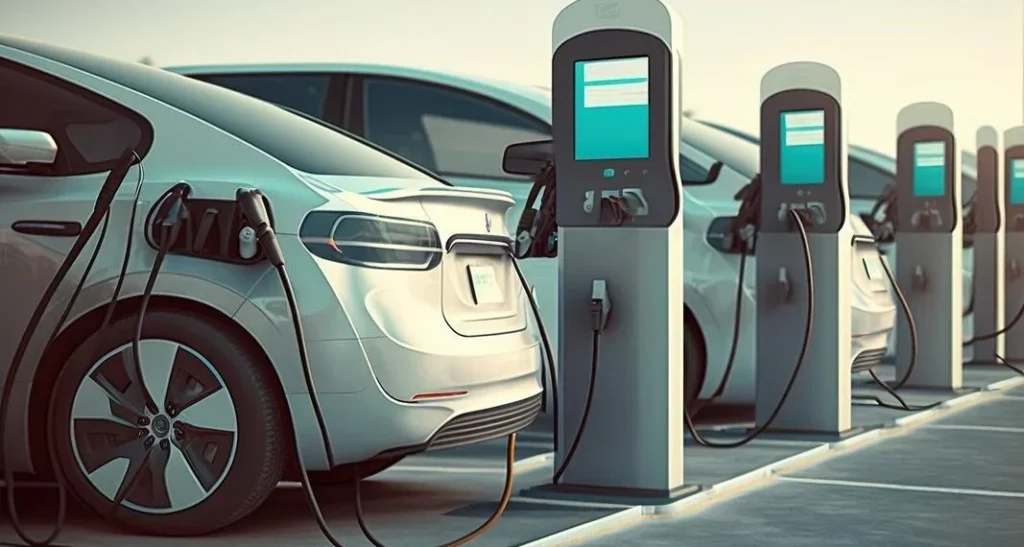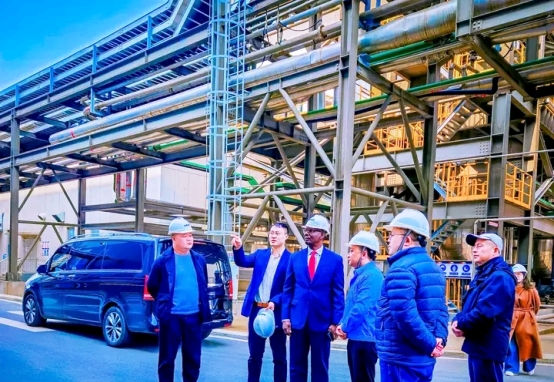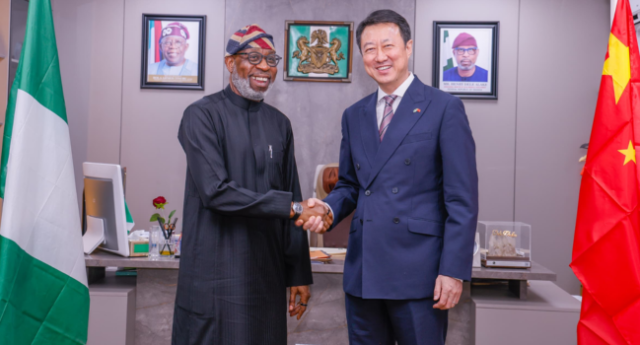Across Nigeria’s vast mineral-rich landscape, a remarkable shift is underway: Chinese capital is transforming the nickel-lithium supply chain and accelerating the country’s entry into the global electric vehicle (EV) market. This surge in investment is setting the stage for Nigeria—Africa’s most populous nation—to become a linchpin in the clean-energy revolution.
Table of Contents
Lithium processing at home: an economic game-changer
In May 2025, Nigeria’s Ministry of Solid Minerals confirmed the imminent launch of two Chinese-backed lithium processing plants. One, a $600 million facility by Jiuling Lithium Mining Company, straddles the Kaduna–Niger border and is scheduled to enter production this quarter. The other, a $200 million plant by Canmax Technologies in Nasarawa State near Abuja, is expected to begin operations in Q3. Both projects see Chinese partners financing more than 80% of the cost, with Nigerian companies contributing the remainder.
These announcements follow a broader mining sector transformation triggered by a 2022 Geological Survey, which mapped major high-grade lithium fields across Kaduna, Nasarawa, Kwara, Osun, Kogi, Ekiti and beyond. With some deposits reaching up to 13% lithium oxide—far exceeding the usual 0.4% threshold for viable extraction—Nigeria is primed for serious industrial exploitation.
Scaling up: the bigger picture
Chinese investment in Nigeria’s lithium ecosystem already totals approximately $1.3 billion, including the commissioning of a $250 million plant in Nasarawa last year . Canmax’s founder, Pei Zhenhua, is also laying plans for expanded mining operations in northern Nigeria through a partnership with local firm Three Crown Mines. Alongside these, Jiuling—established in 2011 and a major supplier of battery-grade lithium salts to Tesla and BYD—has broadened its Africa footprint, now owning the larger, flagship Kaduna refinery.
Nigeria’s homegrown competitors
Rooted in Kaduna’s rich spodumene belt, UK-based Jupiter Lithium Ltd has made rapid progress, partnering with the US’s ReElement Technologies to develop Nigeria’s largest lithium project yet. Their first concentrator came online in Q1 2025, with an initial output of 55,000 t/year of 6% spodumene concentrate, with plans to scale to 167,000 t/year by 2027. This output is destined for European and American markets, but the company is also forging strategic links domestically: in June, local EV leader EMVC struck a deal with Jupiter to build a fully integrated lithium-to-EV supply chain.
On the local front, rising EV-makers such as Abuja-based EMVC and Lagos-based Saglev are gaining momentum. EMVC’s lineup ranges from tricycles and buses to farm machinery, while Saglev is focusing on sedans and SUVs. They are positioning themselves not as rivals to Chinese brands like BYD—recently introduced via a partnership with CFAO—but as collaborators in a broader Nigerian EV ecosystem.

From raw minerals to finished cars: the local value add push
President Bola Tinubu’s administration has implemented a pivotal policy: no export of unprocessed minerals. Instead, investors must commit to domestic refining and processing. In May, Solid Minerals Minister Dele Alake explained that the new local value-add policy mandates investors to present full plans for local processing, thus underpinning the rise of lithium plants across Kaduna and Nasarawa.
The goal is bold: vertically integrated EV supply chains that span mining, refining, battery production and vehicle assembly—all powered by homegrown manufacturing. Following Tinubu’s September 2024 state visit to China, the two nations elevated ties to a “comprehensive strategic partnership,” explicitly targeting cooperation in green tech, mining, energy and infrastructure .
China’s ambassador to Nigeria, Yu Dunhai, confirmed that plans are underway for establishing EV assembly plants in the country .
Solving grid issues with off-grid solutions
Nigeria’s unreliable national grid has historically impeded industrial and consumer progress. EV stakeholders are responding by doubling down on solar: EMVC is partnering with federal agencies to install solar-powered fast-charging stations around Abuja; individual EV owners, like Abuja-based enthusiast Ardo Mohammed—who recently replaced his petrol car with a BYD Atto 3—are adopting rooftop solar with storage to power their vehicles .
These off-grid strategies echo Nigerian businesses’ long-standing adaptations to frequent power outages—this time, accelerating the shift to green energy and transport.
Challenges lurking in the supply chain
Despite optimism, significant hurdles remain. Large swathes of lithium mining are informal and poorly regulated—Nigeria’s mining marshals have already arrested dozens of unlicensed operators, including some Chinese nationals, in Nasarawa and Oyo states . Artisanal extraction, including child labour, remains a concern.
Nigerians celebrated the decision to block Tesla from exporting raw lithium, insisting all mining should include processing on Nigerian soil. Yet experts warn of “resource curse” risks: overdependence on lithium revenues could mirror oil’s pitfalls if governance and anti-corruption measures lag.
Economic and environmental upside
Still, the upside potential is significant. Jupiter-ReElement projects targeting 167,000 t/year could generate revenues exceeding $6.2 billion, assuming lithium prices around $37,000/tonne. Modular concentrators, like those planned by Bevex Mining Services and Jupiter partners near Kafanchan, are engineered for cost-efficiency, with local processing slashing overheads.
Municipalities tied to these plants are already receiving infrastructure boosts—water, roads, rural electrification, and scholarships reflect a growing trend toward inclusive development campaigns.
Strategic diplomacy shifts the odds
Nigeria’s international diplomacy under Tinubu has broadened beyond oil—it now emphasises green minerals, EVs, renewable energy and digital infrastructure. Foreign Minister Yusuf Tuggar took this agenda to Beijing in June, leveraging Forum on China-Africa Cooperation ties to advocate for non-tariff cooperation and green-tech investment .
These diplomatic efforts mark a recalibration: Nigeria is not merely a supplier of raw materials, but a prospective production partner in China’s global downstream plans.

Looking ahead: from supply to assembly
The ultimate ambition is clarity of purpose: build a domestic EV industry powered by home-refined lithium batteries. With Chinese financing, Nigerian partners and supportive policy, the ecosystem is taking shape. If solar charging infrastructure expands and energy regulation deepens, Nigeria could serve as a prototype for integrated EV supply chains in Africa.
But success demands more than mineral wealth: formalisation of mining practices, environmental stewardship, and governance are non-negotiables. Failure to address illegal mining, ecological impacts and corruption could diminish this opportunity.
Conclusion
Chinese investment is catalysing Nigeria’s transformation—from raw lithium belts to EV manufacturing platforms. With $1.3 billion committed to processing facilities and robust global partnerships, the stage is set. Nigeria’s leaders face a pivotal moment: leverage this investment into industrial diversification, energy independence and technological growth—or allow history to repeat the resource-exploitation cycle.
Join Our Social Media Channels:
WhatsApp: NaijaEyes
Facebook: NaijaEyes
Twitter: NaijaEyes
Instagram: NaijaEyes
TikTok: NaijaEyes







































